Description
ABSTRACT
An Examination of the Powers of the Economic and Financial Crimes Commission to Restrict Bank Accounts for Investigations
Kelechi Obi*
By virtue of Section 31 of the Nigerian Financial Intelligence Act 2018, the word “Commission” under Section 6 of the Money Laundering (Prohibition) Act (MLPA) 2011 has been amended and substituted with the word “Nigerian Financial Intelligence Unit”, while the word “Chairman of the Economic and Financial Crimes Commission” has been amended and substituted with the word “Director of the Nigerian Financial Intelligence Unit”. However, in reality, the Economic and Financial Crimes Commission continues to act in the capacity highlighted in Section 6 of the Money Laundering (Prohibition) Act (MLPA) 2011. This review x-rays the power of the Economic and Financial Crimes Commission (EFCC) to place any form of restraint on the bank account of an individual under investigation. The Court of Appeal has held in Guaranty Trust Bank Plc v Akinsiku Adedamola & 2 Ors and Savannah & Chemical Ind. v EFCC & Anor that no law imposes a unilateral power on the EFCC to freeze an individual’s account without a court order under Section 34 of the Economic and Financial Crimes Commission Act 2004. However, the Courts have not nullified Section 6(5) of the Money Laundering (Prohibition) Act (MLPA) 2011 and the power of EFCC under the MLPA to restrict the account of an individual for 72 hours without an order of a court. This review reveals the existence of a law in Nigeria that empowers the EFCC to restrict an individual’s account under investigation without an order of a court.
Keywords: EFCC, Bank account, Financial crimes, Money Laundering (Prohibition) Act
INTRODUCTION
The relationship between a bank and its customer is contractual.1 The essence of the contract of banker and customer is the bank’s right to use the money for its own purpose, and it’s undertaking to pay an amount equal to that paid in, with or without interest, either at call or at a fixed time.2 The relationship between a bank and its customer places on the bank, duties, rights and obligations3 bordering on good faith. In that regard, the bank is to receive cheques4 from its customer and is bound to pay the cheques drawn on it by a customer, provided there are sufficient funds.5
* Partner, Mcpherson LLP, Lagos, Nigeria.
- Foley v Hill [1848] 2 HL Cas 28; Joachimson v Swiss Bank Corporation [1921] 3 KB 110, 127. See also J Odgers, Paget’s Law of Banking (4th edn, LexisNexis 2018) 110.
- EP Ellinger, E Lomnicka & RJA Hooley, Ellinger’s Modern Banking Law (4th edn, Oxford 2006) 122.
- Duty to honour cheques, duty of confidentiality & secrecy, duty of care & skill. See also Diamond Bank Ltd v Partnership Investment Co Ltd & Anor [2009] LPELR-939(SC); Tournier v National Provincial and Union Bank of England [1924] 1 KB 461; Union Bank of Nigeria PLC v N. M. Okpara Chimaeze [2014] LPELR-22699(SC).
- In modern times, cheques have been significantly replaced by electronic and digital payment systems.
- United Bank for Africa Plc v Habila Marcus [2015] LPELR-40397(CA).

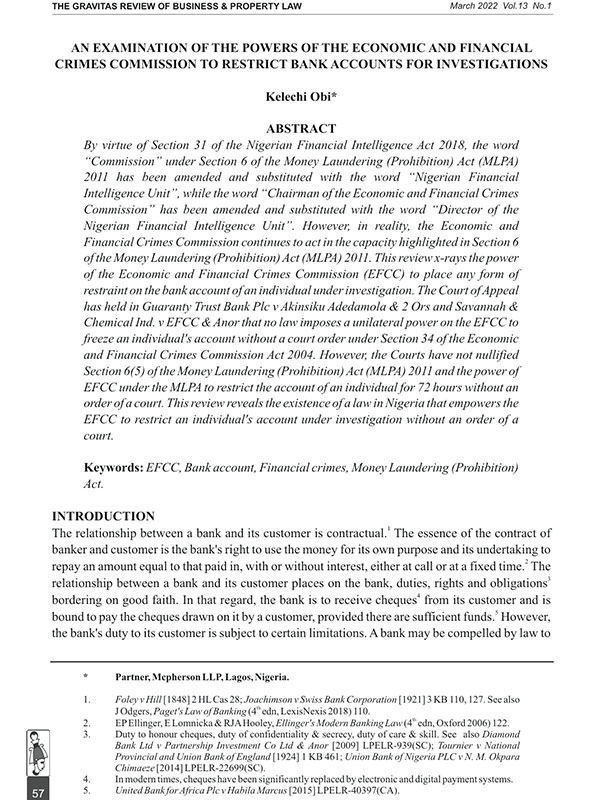
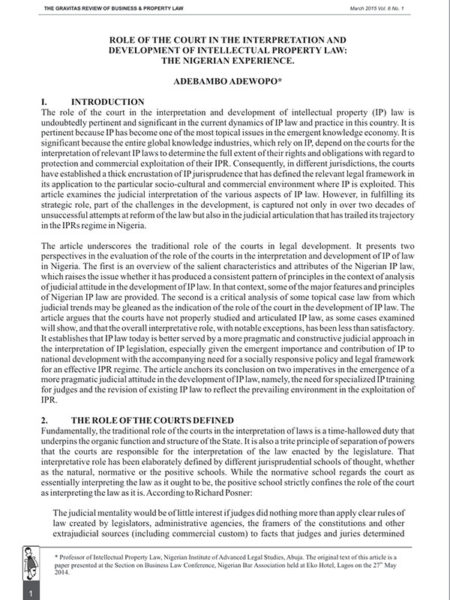
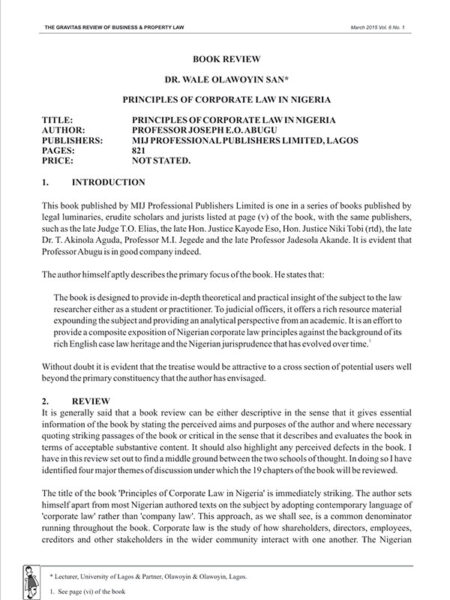
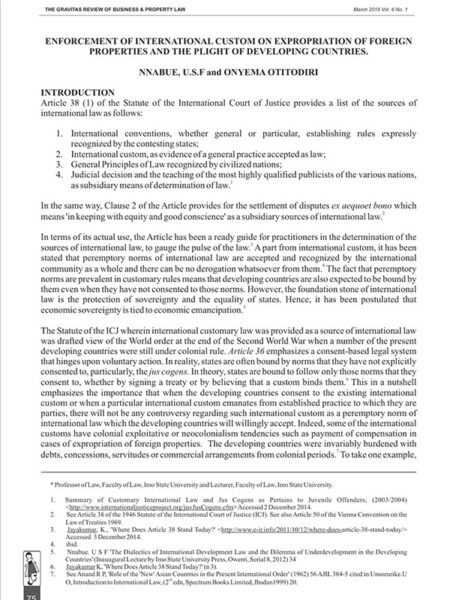
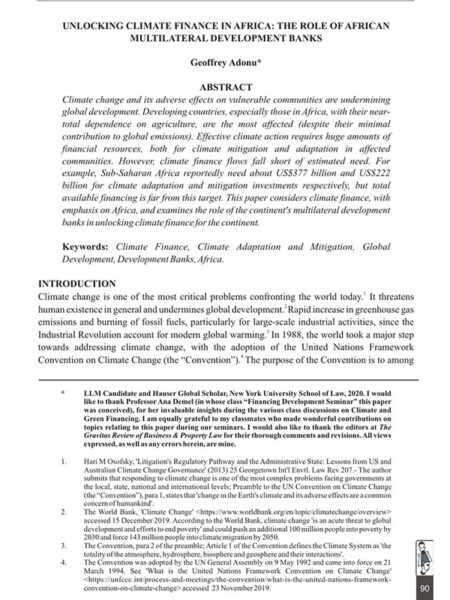


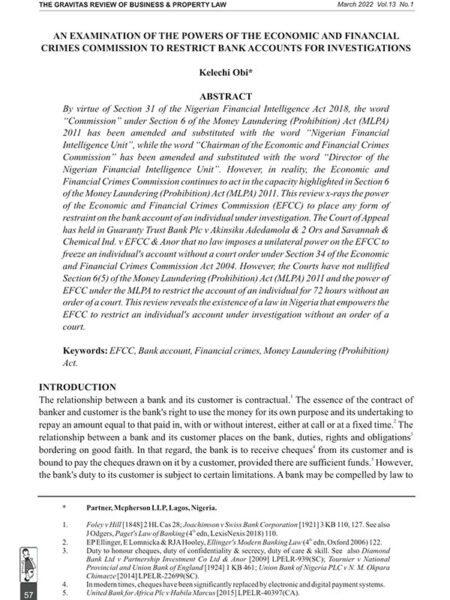
Reviews
There are no reviews yet.